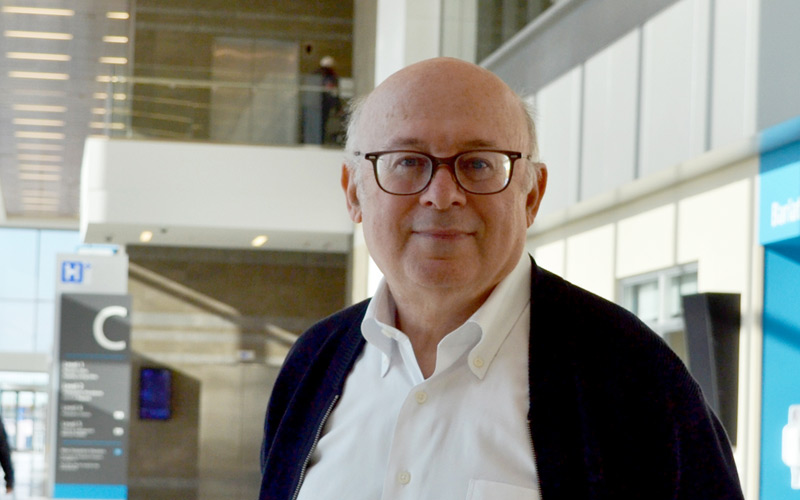“ Physical illness begins a very serious journey where there is a disconnect between one’s sense of embeddedness in one’s own body, to all of a sudden being contained within a persecutory object.”

Gavril Hercz MD
Toronto
Episode Description:
Harvey Schwartz welcomes Dr. Gavril Hercz to the podcast. Dr Hercz is both a practicing nephrologist and a practicing psychoanalyst. His nephrology practice is at the Humber River Hospital in Toronto, Canada and he is a member of the Canadian Psychoanalytic Society. This combination of skills is of course unusual and will form the basis of our conversation today. Dr. Hercz is also an associate professor in the University of Toronto and he is the founder of psychonephrology.com.
Dr. Hercz will describe how he had brought his psychoanalytic sensitivities to his work in nephrology and in dialysis units. Through his writings and lecturing worldwide he has had an important influence on how dialysis is understood and carried out, not only in Canada but around the world.
Key Takeaways:
[2:45] Dr. Gavril Hercz winner of the IPA in Health Committee award.
[5:15] Listening to the inner life while attending the physical health.
[6:06] It is not only the individual but the family that becomes ill.
[8:44] Bringing psychoanalysis to dialysis units.
[9:37] Cognitive dissonance.
[10:28] Chronic physical illness begins a journey of disconnection within the body.
[11:25] The changes in the relationship with one’s body.
[13:50] Group and one- on -one interventions.
[15:12] The challenges of the frame.
[17:48] Integration as a physician and psychoanalyst.
[20:03] Generating quantifiable data about quality of life.
[22:00] Psyco-social model of care.
[25:45] Asking nurses to write down conversations with the patients.
[26:26] Patients having the experience of being known.
[28:50] The foundations of Psychonephrology.com
Recommended Readings
Hercz G. The trauma of dialysis Initiation. J Am Soc Nephrol 28: 2835-2837, 2017
Garland C. External disasters and the internal world : An approach to psychotherapeutic understanding of survivors. In: Textbook of Psychotherapy in Psychiatric Practice, edited by Holmes J, London, Churchill Livingstone. 1991, pp 507-532
Aisenstein M. The indissociable unity of psyche and soma: A view from the Paris Psychosomatic School. Int J Psychoanal 87:667-680, 2006
Winkley L. Living with chronic illness: Consultation to a children’s renal dialysis unit. J Child Psychother 16:49-62, 1990

This is incredibly eye-opening! Thank you so much for the insights!
Thank you for your comment. I am curious as to which part(s) you found insightful?
Psycho-nephrology, as explained by Dr. Hercz in this podcast, outlines how important is to shift the analytic mind from an exclusive micro-perspective to a complementary macro-perspective. When applying the same quantitive tools of today’s evidence-based medicine to measure the importance of psychoanalytic interventions in chronic illness we succeed in educating the non-analyst and we increase public awareness of psychoanalytic based Psychosocial Care and Patient-Centred Care. We must shift our thinking from a purely psychoanalytic micro-perspective to a more complementary psychoanalytic applied macro-perspective. In my opinion, in this digital era of condensed non-Thinking, so well described by Christopher Bollas, the macro-perspective will become crucial for the diffusion and survival of Psychoanalysis.
Excelent tópic! Very unusual. Congratulations for the proyect.
Thank you for your kind words.